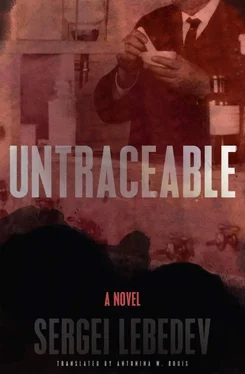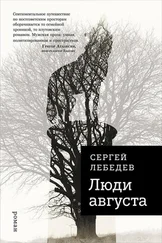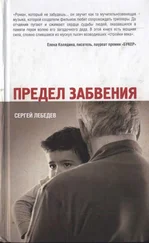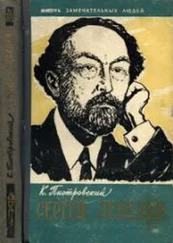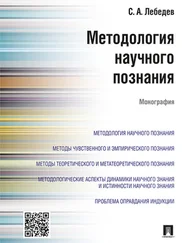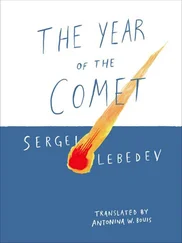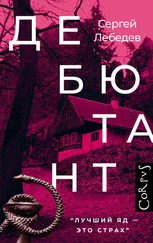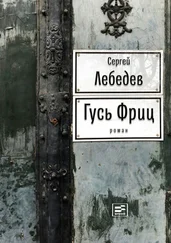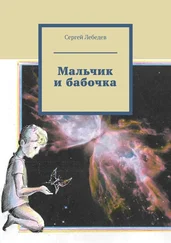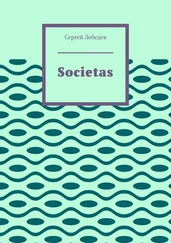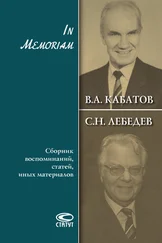Сергей Лебедев - Untraceable
Здесь есть возможность читать онлайн «Сергей Лебедев - Untraceable» весь текст электронной книги совершенно бесплатно (целиком полную версию без сокращений). В некоторых случаях можно слушать аудио, скачать через торрент в формате fb2 и присутствует краткое содержание. Город: New York, Год выпуска: 2021, ISBN: 2021, Издательство: New Vessel Press, Жанр: Современная проза, на английском языке. Описание произведения, (предисловие) а так же отзывы посетителей доступны на портале библиотеки ЛибКат.
- Название:Untraceable
- Автор:
- Издательство:New Vessel Press
- Жанр:
- Год:2021
- Город:New York
- ISBN:978-1-939931-90-0
- Рейтинг книги:3 / 5. Голосов: 1
-
Избранное:Добавить в избранное
- Отзывы:
-
Ваша оценка:
- 60
- 1
- 2
- 3
- 4
- 5
Untraceable: краткое содержание, описание и аннотация
Предлагаем к чтению аннотацию, описание, краткое содержание или предисловие (зависит от того, что написал сам автор книги «Untraceable»). Если вы не нашли необходимую информацию о книге — напишите в комментариях, мы постараемся отыскать её.
Untraceable — читать онлайн бесплатно полную книгу (весь текст) целиком
Ниже представлен текст книги, разбитый по страницам. Система сохранения места последней прочитанной страницы, позволяет с удобством читать онлайн бесплатно книгу «Untraceable», без необходимости каждый раз заново искать на чём Вы остановились. Поставьте закладку, и сможете в любой момент перейти на страницу, на которой закончили чтение.
Интервал:
Закладка:
Then they sent a rat catcher with an express security clearance; they had all kinds of specialists in their system! The rat catcher with all his powders didn’t succeed, either.
That’s when Kalitin announced the competition, as if for fun. He was affronted that some pathetic rodents had the run of his place while they, the poison masters, the researchers and creators of the most toxic substances in the world, could not destroy them.
It turned out that everyone was sick of the rats. His staff, especially the young people, were zealous in developing recipes and inventing traps. It seemed the end had come for the rats, and Kalitin joked: see what science can do! But he soon discovered that not all of the rats were dying. They destroyed most of them, but some, at the cost of their companions’ deaths, learned to recognize bait and avoid traps. There weren’t many of them, just a few. But they couldn’t kill them, and all human tricks had limited effect.
Kalitin learned their traces and habits. He could tell which rat had visited. One, a huge rat with a bitten tail, seemed to tease him, flashing by in the dim corridor and then vanishing. Kalitin could have gotten rid of them, but only by poisoning everything, endangering himself and the staff, paying a price that was not worth a rat’s life.
Ever since, he had had a watchful, uneasy respect for rats, as if nature was showing him an important exception that had to be taken into account. Later, in his new life, when he felt like a cornered rat, Kalitin discovered to his surprise that this association reassured him, as if he had become that exception to the laws of hunt and capture, manifested in only one breed of creatures.
He received a sign that his sensations were correct. A sign that came from the long bygone past of his new house. With an unpredictable rhyme it merged the two halves of his biography, separated by defection, border, death sentence.
Cars never came to his house, except for the yellow postal van and the taxis he ordered. It was on a dead-end road. No landmarks nearby, so tourists wouldn’t wander in by mistake. Hunting was banned, leaving the boar population to expand, but the old hunting towers still stood on the slopes and along the brook.
However eleven, yes, eleven years ago he saw a car beneath his windows, a shabby gray sedan, an unobtrusive vehicle used for surveillance and hired killers. Even though Kalitin realized that people sent to kill him would not reveal themselves that openly, he quickly went down to the cellar, trying not to be visible through the windows, opened the gun cupboard, and returned upstairs with a loaded rifle.
The doorbell rang; long, demanding: in the manner of the police or courier delivery. Kalitin decided not to open the door, even though his own car parked under the overhang showed that he was probably in. He was afraid to approach the peephole. And he was afraid, completely irrationally, that if this were say an insurance agent, or surveyor, or an official from the nature preserve—they would spread talk that the professor did not open the door even though he was home and someone, a someone he made up in his own head, would suspect that the inhabitant of the lonely house on the hill had something to fear and something to hide.
He had not yet equipped the house with the soundproof steel door, made to look like wood. The surveillance cameras that he could monitor from the computer. Kalitin could not see who was at the door without giving away his presence.
The visitor stepped down from the porch and started walking around the house. Through a space between the curtains, Kalitin saw a face—a typical Englishman, curly reddish hair, glasses, the only Englishman for dozens of kilometers around—certainly not sent by the homeland, they sent their own people, Slavs—and it wasn’t a visitor from his new masters, they would have warned him. A journalist? Had he sniffed something out? A leak? Someone turned him in?
Kalitin realized that fear had made him forget his secret companion, the joker, Neophyte. The preparation slept in its reliable flask behind the door of a special safe for active substances. Kalitin suddenly imagined what could happen if Neophyte woke on its own and found even a micron-sized opening in the hermetic flask, got free, bypassing the dosimeter, and escaped completely, dissolving instantaneously in the air. He would fall asleep without knowing that he was dead. The curious Englishman would be dead. The swallows that made a nest under the eaves and their babies. Butterflies and mosquitoes. Tree beetles, worms, woodlice, even moles. In the morning the mailman would see a corpse by the house, he would call the police, they would break down the door but find and smell nothing except the heavy, particular smell of yesterday’s death. Neophyte would be gone, lost amid the atoms and molecules of the astral plane. Only an experienced and sensitive senior officer, an old bloodhound, would say, sniffing in irritated surprise, “A luxurious house, and clean, but it smells of bedbugs!”
His deputies would assure him that it did not smell of bedbugs.
Kalitin chuckled. He had such a clear vision of the dead Englishman, so incongruous and comic in his plaid wool jacket among the fresh molehills, that he stopped being afraid of him. It was as if Neophyte had sighed in its sleep, and that breath was enough to chase always the fears of its imperfect creator.
Kalitin hid the rifle in the closet. Open? Not open? If it’s a journalist, it’s better to find out what he knows. Better to have a chance to give his own version.
Deceive.
Justify.
He opened the door.
The Englishman turned toward the sound. A thin ocher sweater under his jacket. Light classic jeans. Suede moccasins. Camera on a strap over his shoulder. A big, expensive camera, clearly often used, since some paint had worn off the lens rim. Thin. Not an athlete, but agile and energetic. Externally a polite friendliness, embarrassment at disturbing the owner. Inside, a masterful self-confidence, a trained ability to play along with whatever the owner said and in five or six phrases bring the conversation to the point. A journalist. Excited, following a trail, and for all that, like a loud shot missing the mark, missing Kalitin’s particular destiny.
He wasn’t there for him, but for some other mission that was inciting him, prodding, filling him with the joy of discovery. The Englishman was staring with the sharp, visionary greed of an archaeologist, the madman Schliemann—but at the house, not the owner.
Kalitin knew who the previous owners were: descendants of salt traders. The house had been their country villa. Allegedly one member of the family made a career under the Nazis in occupied Poland, and Kalitin assumed the journalist was writing a book and had come to learn about that official of the general governorship. Unexpectedly, Kalitin realized this made him uncomfortable; as if he were tied to the former owners by the shackles of inherited family secrets, and the obnoxious visitor was trying to learn about his life, too.
He would have kept it to a quick chat on the porch. But he did not want the journalist to notice his taciturn reluctance to talk and keep it in his professionally long and tenacious memory, so he played the part of a friendly and bored simpleton and invited him in.
If only the journalist could have known that there were two related stories associated with the house, that the shell had landed a second time in the same crater, he would have noticed how unexpectedly deep and animated was the new owner’s surprise when he was told why the journalist was there.
Beyond the nearby mountains, divided by an angry, restless river, beyond the dark crests covered in old forests that had borrowed the long life of stone, there was a fortress that had known prisoners of several centuries and realms. During the war, it had been a concentration camp.
Читать дальшеИнтервал:
Закладка:
Похожие книги на «Untraceable»
Представляем Вашему вниманию похожие книги на «Untraceable» списком для выбора. Мы отобрали схожую по названию и смыслу литературу в надежде предоставить читателям больше вариантов отыскать новые, интересные, ещё непрочитанные произведения.
Обсуждение, отзывы о книге «Untraceable» и просто собственные мнения читателей. Оставьте ваши комментарии, напишите, что Вы думаете о произведении, его смысле или главных героях. Укажите что конкретно понравилось, а что нет, и почему Вы так считаете.
